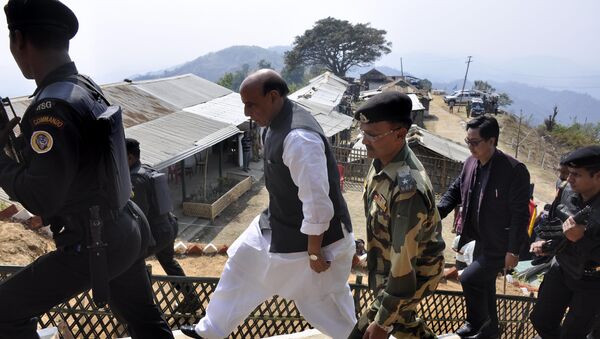Soon after the historic Supreme Court judgement in the Ram Janmbhoomi-Babri Masjid Land dispute, India’s Defence Minister Rajnath Singh hinted at an impending decision to modernise the Uniform Civil Code (UCC).
“The time has come,” he told reporters when asked about the UCC.
The time is ripe for a Uniform Civil Code and it would be a definitive step towards "gender justice", Rashtriya Swayamsevak Sangh (RSS, the parent organisation of the ruling Bharatiya Janata Party) ideologue Seshadri Chari said in August during an interview with the Indian news website The Week.
The UCC was part of the ruling BJP’s manifesto as well.
The Delhi High Court is expected to hear a number of petitions on Monday seeking the implementation of the Uniform Civil Code (UCC). A division bench of Delhi H.C. comprising Justice C Harishankar and Chief Justice D. N. Patel will also look into the matter on Friday.
In September, the Supreme Court of India had expressed dismay over the failure of successive governments to enact a uniform civil code despite repeated appeals from the court.
In May of this year, the court had asked the Union government and the Law Commission to file their affidavit on the public interest litigation (PIL) regarding the implementation of the Uniform Civil Code.
The Defence Minister’s statement comes ahead of the beginning of the Winter Session of the Parliament, which is scheduled to begin on 18 November and continue until 13 December. The speculations are that the Uniform Civil Code will see the light of the day this parliament session.
What Does the UCC Mean
The UCC is a proposed common set of governing rules for all citizens of India which many politicians hope will replace the personal laws (based on religious scriptures and customs) covering marriage, divorce, inheritance, adoption and maintenance.
The British government had established uniform laws for crime, evidence and contracts, but abstained from getting involved in personal matters, hence the personal laws of Hindus and Muslims were formed, where the communities governed themselves with respect to personal matters. The personal laws, are known to be discriminatory against women.
However, even when the Indian constitution was being written in 1946, there was a resistance from representatives of certain communities to the establishment of a uniform civil code, hence a line in the Constitution under Article 44 in Part IV of Directive Principles of State Policy (DPSP) was added. It said “The State shall endeavour to secure for the citizens a Uniform Civil Code throughout the territory of India.”
As it is incorporated in the DPSP, the mandate is not enforceable in court unless a law is formed.


